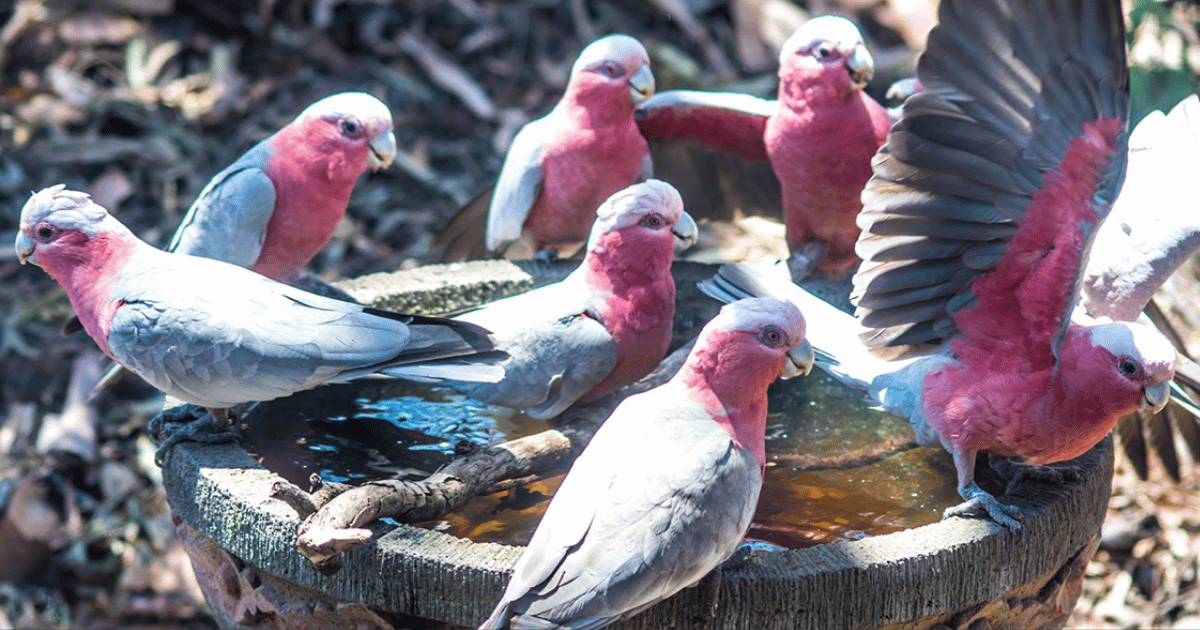
Extreme heat can significantly impact wildlife, leading to dehydration, exhaustion, and even death, especially if they are not accustomed to such high temperatures. Wildlife may struggle to find enough water and suitable shelter to protect themselves from the heat. We must be mindful of the impact of heat waves on all living creatures and take steps to help support local wildlife during these challenging times.
Identifying Heat-Stressed Animals
During periods of extreme heat, wildlife may show the following signs of distress:
- Birds: Panting with open beaks, wings outstretched, seeking shade.
- General Signs: Confusion, lethargy, and disorientation.
- Grounded Animals: Flying-foxes, possums, gliders, and koalas may be found on the ground, often seeking cooler areas.
- Kangaroos and Wallabies: Lethargy, reluctance to move, salivating, and lying down without quickly moving away when startled.
- Reptiles: Seeking refuge in cool, dark places such as under bushes, burrows, or rocks.

How You Can Help
Here are some ways you can assist wildlife during extreme heat:
- Provide Water: Place shallow water containers around your yard, ensuring they are clean and water is changed daily.
- Escape Ramps: Place sticks or stones in water containers to provide escape routes for smaller animals that may fall in.
- Pools and Skimmer Boxes: Check pools and skimmer boxes twice a day for wildlife that may have fallen in. Provide a tethered rope or platform as a means of escape.
- Reptile Assistance: Position water containers along the fence line to provide water for reptiles. This will not only hydrate them but also deter them from approaching houses.
- Flying-fox Assistance: On very hot days, if you find a flying-fox on the ground or entangled in netting, call WIRES immediately at 1300 094 737 for help.
- Protect Pets: Keep cats and dogs indoors to prevent them from preying on vulnerable wildlife.
- Shade: Offer shade for distressed animals with garden umbrellas or other covers. This helps prevent further heat stress.
- Mist or Sprinkler: Gently mist distressed animals or place a nearby sprinkler to help cool them down.
To access 24/7 rescue advice and assistance for sick, injured and orphaned native animals call 1300 094 737, or fill in the online rescue form.
Sign Up for Wildlife News
Stay in touch and get our regular rescue stories, WIRES updates and a free copy of our 15 Ways to Help Wildlife ebook
